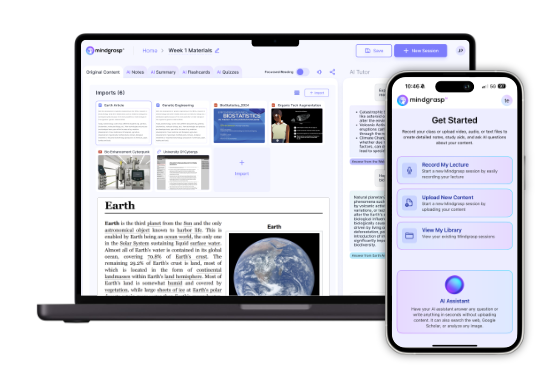
So, you've wrapped up physics—nice work! What comes next?
You could plunge into advanced science classes like AP Chemistry or Biology. If you're into tech, Computer Science might be your jam; it’s great for problem-solving.
Ever thought about dual enrollment? You can snag college credits early, which is a real plus. Plus, there are cool internships and competitions to boost your experience. Curious about what else you can explore next?
Let’s break it down!
Key Takeaways
- After physics, students can pursue advanced science courses like AP Chemistry or AP Biology for deeper scientific understanding.
- Specialized paths such as engineering programs can enhance knowledge in design, robotics, and sustainability.
- Dual enrollment opportunities allow students to earn college credits, accelerating their academic journey.
- Engaging in interdisciplinary options promotes collaboration and practical applications of physics concepts in real-world scenarios.
- Developing strong communication skills in science fosters confidence and critical thinking, essential for future academic and career pursuits.
Boost Your GPA Faster with Mindgrasp
Instantly turn your class notes into smart summaries, flashcards, and quizzes—study less, learn more, and ace your exams.
Try it FreeExploring Advanced Science Courses
When you finish your physics class in high school, you might wonder, "What’s next?"
Exploring advanced science courses can open up a whole new world of learning and fun! You’ve got exciting options like AP Chemistry or AP Biology, which dive deep into experiments and ecosystems.
Want to mix things up? Take AP Environmental Science to explore sustainability and climate change.
These elective science courses create advanced science pathways, helping you connect classroom knowledge to real-world issues. Additionally, utilizing tools like Mindgrasp’s AI tool for Physics can enhance your study experience and improve your understanding of complex scientific concepts.
The Role of Computer Science in Future Studies
As you look ahead to your future studies, computer science (CS) plays an essential role in opening up new opportunities. It’s not just about coding; it’s about understanding how technology shapes our world.
Here are three ways CS can benefit you:
-
Career Pathways: CS connects to fields like IT, engineering, and media—lots of options!
-
Programming Logic: Learning programming helps you think critically and solve problems creatively.
-
Ethical Considerations: You’ll explore important topics like algorithmic bias and digital citizenship, ensuring you create tech responsibly.
Embrace computer science, and who knows? You might be the next digital innovator!
Interdisciplinary Options for Science Enthusiasts
You might’ve thought computer science was the end of your science journey, but there’s so much more waiting for you! Interdisciplinary research opens doors to creative, collaborative learning experiences. Whether you immerse yourself in Earth systems, engineering, or life sciences, each path integrates physics concepts and real-world applications. Here’s a quick look at some options:
| Option | Focus | Skills Developed |
|---|---|---|
| Integrated Physics | Foundations in STEM | Critical thinking, experimentation |
| Earth Systems | Ecology and physics | Conservation, sustainability |
| Engineering Science | Design and problem-solving | Prototyping, teamwork |
Explore and enjoy!
Specialized Physical Science Paths
Diving deeper into specialized physical science paths can be exciting, especially after finishing high school physics.
You might want to explore areas that pique your interest and align with future goals. Here are a few specialized science paths to evaluate:
- Advanced Physics Courses
-
AP Physics C (Mechanics and Electricity & Magnetism)
-
Modern Physics (quantum mechanics, relativity)
-
Theoretical Physics (conceptual problem-solving)
- Engineering Programs
-
Engineering Design Courses (problem-solving)
-
Robotics and Automation (coding integration)
-
Environmental Engineering (sustainability solutions)
- Earth and Space Sciences
-
Astronomy (stellar systems)
-
Advanced ESS (Earth’s systems)
-
Environmental Science (conservation efforts)
These paths open doors for future study and careers!
Try Mindgrasp for Free!
Experience an easier, faster way to boost your GPA. Sign up now to try Mindgrasp AI for free and see how AI-powered learning transforms your study routine.
Try it FreeDual Enrollment Opportunities
If you’re thinking about taking your education to the next level, dual enrollment could be a game changer!
You can earn college credits while still in high school, which is pretty cool—right?
Let’s chat about the benefits, how to pick the right courses, and ways to juggle everything without losing your mind!
Benefits of Dual Enrollment
When you think about high school, it might seem like just a time to hang out with friends and get through classes, but there’s something else that can really boost your future—dual enrollment!
Here are some dual enrollment advantages you shouldn't miss:
-
Financial Efficiency: You can take courses for low to no tuition costs, saving on future college expenses.
-
Academic Benefits: You earn dual credits, reducing the time to complete your degree.
-
College Readiness: You get a taste of college rigor, helping you shift smoothly to higher education.
Course Selection Strategies
Choosing the right courses for dual enrollment can feel a bit overwhelming, but it doesn’t have to be! Start by checking course prerequisites for classes like AP Physics C or college-level physics.
These courses can give you a head start on your STEM journey.
Think about your elective choices too! Courses like Applied Physics or engineering fundamentals can be super beneficial.
Consider programs at universities like Georgia Tech or Liberty University, where you can find flexible options.
Balancing High School Workload
Balancing your high school workload while diving into dual enrollment can feel like juggling flaming torches—exciting but a bit scary!
But don’t worry, you can achieve academic balance with some smart strategies. Here are three tips for effective workload management:
-
Choose Wisely: Select courses that match your interests and schedule to avoid overload.
-
Stay Organized: Use planners or apps to track assignments and deadlines.
-
Ask for Help: Don’t hesitate to reach out to teachers or peers if you’re feeling overwhelmed.
With these steps, you’ll manage your workload like a pro and enjoy your dual enrollment journey!
Practical Experience Through Internships
Internships can be a fantastic way to immerse yourself in the world of physics and get some hands-on experience.
You’ll find various internship types, like the PPPL High School Summer Internship or Fermilab’s programs, that let you engage in real projects. To land one, start with solid application strategies—like researching deadlines and tailoring your resume.
Don’t forget about remote options, too! Programs like the Ladder Internship allow flexible scheduling.
Plus, many internships focus on supporting underrepresented groups, ensuring everyone has a shot.
Engaging in Science Competitions
Science competitions can be a thrilling way to dive deeper into your interests and showcase your skills. They offer an exciting platform to explore your passion for science, whether through research symposiums or science fairs.
Engaging in science competitions allows you to deepen your interests and highlight your abilities in an inspiring environment.
Here are three great options to evaluate:
-
Regeneron STS: This prestigious competition values innovation and scientific merit.
-
AAN Neuroscience Research Prize: Perfect for those fascinated by the brain and nervous system.
-
Envirothon: A team-based challenge that promotes environmental problem-solving.
Participating in these competitions can boost your confidence, help you meet like-minded peers, and ignite your curiosity about the world!
The Importance of Science Communication Skills
You mightn't realize it, but science communication skills are super important!
They help you explain complex ideas in ways everyone can understand—think of how cool it's to make science feel relatable and fun.
Plus, when you share your passion for science, you’re not just teaching others; you’re also building a bridge between research and real-life issues—like climate change or health!
Enhancing Public Understanding
When we think about how to make science relatable, it’s clear that communication skills are key.
To boost public understanding and tackle science misunderstandings, you can focus on:
-
Tailored messaging: Use relatable examples and simple language to connect with diverse audiences.
-
Myth debunking: Address common misconceptions directly, providing clear, evidence-based alternatives.
-
Engaging outreach: Participate in educational initiatives that promote science advocacy and critical evaluation.
Promoting Scientific Literacy
While diving into the world of science, it’s easy to overlook how important communication is in making those complex ideas stick. Promoting scientific literacy means you can share your knowledge and engage others. Here’s why it matters:
-
It builds trust in science—people understand the research better.
-
Clear communication helps tackle big issues, like climate change.
-
It boosts your confidence in sharing ideas.
When you develop your science communication skills, you’re not just learning—you're making a difference.
Plus, you'll be better equipped to spot misinformation and think critically. So, let’s get talking about science!
Conclusion
So, what comes after physics? You’ve got tons of exciting options! Whether you immerse yourself in advanced science courses, explore computer science, or take a trip down interdisciplinary paths, the possibilities are endless. Don't forget about internships and competitions—they're like treasure maps leading to new skills and experiences. And hey, don't underestimate the power of good science communication. So, gear up and embrace the adventure ahead—your journey in science is just beginning!
Download Mindgrasp from the App Store
Access Mindgrasp at your desk for in-depth research and writing projects, or use the mobile version to easily access your content on-the-go or record live lectures.
Download the iOS App
